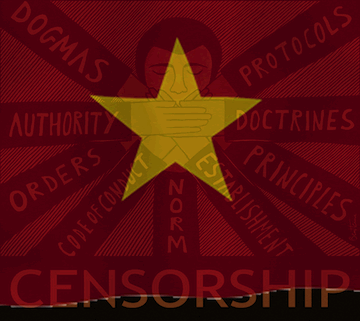Taking the "Social" and "Media" out of "Social Media"

Early this summer, the Wall Street Journal published a on the increasing restrictions to free speech online. South East Asia continues to be a region where internet freedom is under threat.
The most notable case is in Vietnam, where the draconian Decree 72 has been implemented. (More details on other restrictions in Vietnam can be found here). According to the decree, “[A] personal information webpage is a webpage created by individual on their own or via a social network. This page should be used to provide and exchange information of that individual only; it does not represent other individual or organization, and is not allowed to provide compiled information.” This law has severe implications for any journalists, academics, and others who seek to share work accomplished by others. In addition, the decree requires all foreign websites to include at least one server in Vietnam, so that the data stored on those servers can be accessed by local authorities.
Thailand is also no stranger to legal restrictions to free expression online. These restrictions have escalated, with accusations of the popular chat application LINE being subjected to surveillance by Thailand’s Technology Crime Suppression Division (TCSD). The TCSD announced that it “plans to ‘monitor’ conversations on LINE as well as other social media sites such as Facebook, YouTube, and WhatsApp to remove ‘threats’ to the national security. (more) In fact, the commander of the TCSD stated that “liking” a political post on Facebook could cause a user to face criminal charges. For a country where users are recruited to scour social media and blogs to root out any “criticism” of the royal family, and where surveillance continues despite criticisms from both civil society and other government branches, this is a troubling development.
In Cambodia, shortly following the elections in early August, Facebook was offline for several hours. Why? Metfone, Cambodia’s most popular Internet service provider, claimed that a service upgrade operation caused the blockage. Despite this claim, Cambodia has had a history of blocking independent media sites, even going so far as to censor Blogspot in 2011.
We will continue to follow developments in Southeast Asia, and look forward to more pushback by civil society, industry and other governments against these increasingly severe restrictions.
